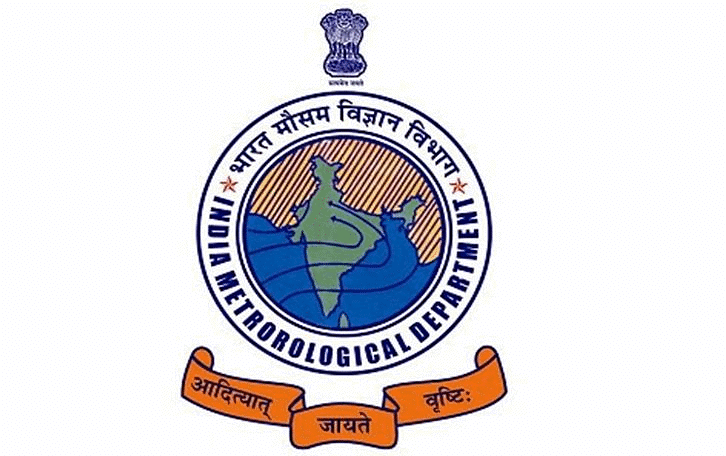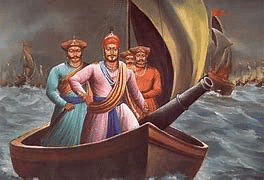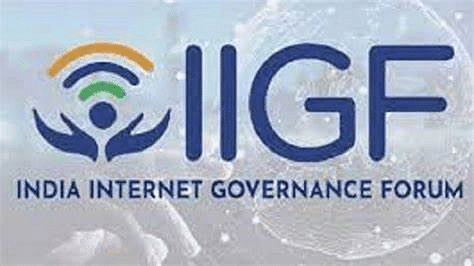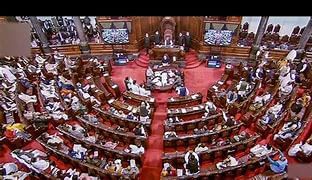UPSC Daily Current Affairs- 5th December 2023 | Current Affairs & Hindu Analysis: Daily, Weekly & Monthly PDF Download
GS-I
India Meteorological Department (IMD)
Subject: Geography

Why in News?
Recently, the India Meteorological Department (IMD) has declared a red alert in five districts of south coastal Andhra Pradesh and north coastal Tamil Nadu as well as an enclave of Puducherry
Background:-
- Chennai is witnessing showers more severe than those experienced in the 1970s-80s, according to state minister KN Nehru.
About India Meteorological Department (IMD):-
- Established: 1875.
- Ministry: Ministry of Earth Sciences.
- IMD Headquarters: New Delhi.
- It is the National Meteorological Service of the country.
- It is the principal government agency in all matters relating to meteorology and allied subjects.
Objectives:-
- To take meteorological observations and provide current and forecast meteorological information for optimum operation of weather-sensitive activities like agriculture, irrigation, shipping, etc.
- To warn against severe weather phenomena tropical cyclones, duststorms, heavy rains and snow, cold and heat waves,, which cause the destruction of life and property.
- To conduct and promote research in meteorology and allied disciplines.
- To provide meteorological statistics required for agriculture, water resource management, industries, oil exploration and other nation-building activities.
The IMD uses 4 colour codes:-
- Green (All is well): No advisory is issued.
- Yellow (Be Aware): Yellow indicates severely bad weather spanning several days.
- Orange/Amber (Be prepared): The orange alert is issued as a warning of extremely bad weather with the potential of disruption in commute with road and rail closures, and interruption of power supply.
- Red (Take Action): When extremely bad weather conditions are certainly going to disrupt travel and power and have significant risk to life, the red alert is issued.
Source: Down to Earth
Chhatrapati Shivaji Maharaj’s Naval Legacy
Subject: History and Culture

Why in News?
On Navy Day, December 4, PM Modi highlighted Chhatrapati Shivaji’s understanding of naval power and announced the incorporation of his emblem on naval officers’ epaulettes.
Indian Navy’s Acknowledgment of Maratha Heritage
- Training Establishment: The Indian Navy’s training facility in Lonavla is named INS Shivaji.
- Administrative Hub: The Western Naval Command’s logistics and administrative center in Mumbai is named INS Angre, after Kanhoji Angre, a prominent Maratha naval commander.
- New Naval Ensign: The Indian Navy’s new Ensign, unveiled in 2022, features the octagonal design of Shivaji’s seal, symbolizing his maritime vision.
About Maratha Navy
| Details | |
| Foundation and Expansion | – Founder: Chhatrapati Shivaji Maharaj – First Vessel: Built around 1654 near Kalyan – Strategic Naval Bases: Vijaydurg, Sindhudurg, Khanderi, Colaba – Philosophy: Principle of ‘Jalameva yasya, balameva tasya’ (‘He who rules the seas is all powerful’). |
| Composition and Command | – Personnel: Native Konkani sailors and mercenaries – Notable Commanders: Shivaji Maharaj, Admiral Kanhoji Angre |
| Naval Fleet and Technology | – Ship Types: ‘Gurab’ (large, three-masted) and ‘Galbat’ (smaller, faster), Tarande , Shibad, Pal, Taru, Tirkiti and Machchava. – Artillery and Arms: Equipped with various cannons, known for innovative naval tactics |
| Tactics and Strategies | – Coastal Dominance: Excelling in coastal defense – Guerrilla Tactics: Using hit-and-run tactics, exploiting shallow creeks and bays |
| Major Conflicts and Battles | – Against European Powers: Engagements with the British and Portuguese – Conflict with the Siddis: Ongoing conflicts with the Siddis of Janjira |
| Decline and Legacy | – Reasons for Decline: Internal strife, technological advancements by Europeans, rise of British naval power – Legacy: Remembered for resisting colonial powers, protecting the western coast of India |
Source: The Hindu
GS-II
India Internet Governance Forum 2023
Subject: Governance

Why in News?
Recently, the India Internet Governance Forum 2023 took place.
About India Internet Governance Forum 2023:-
- Date: 05, December,2023.
- Venue: New Delhi
- The forum is a multi-stakeholder platform bringing together representatives from various groups to discuss public policy issues related to the Internet.
- Theme: Moving Forward – Calibrating Bharat’s Digital Agenda.
- The event is an effort to discuss issues such as building a secure, trusted and resilient cyberspace for Bharat, Enabling Innovation for India’s Developmental Goals, Bridging Divides and Calibrating Bharat’s Digital Agenda.
- The India Internet Governance Forum is an initiative associated with the UN Internet Governance Forum.
- The session will be graced by the presence of Shri Rajeev Chandrasekhar, Minister of State for Electronics & Information Technology and Skill Development & Entrepreneurship.
- A special address will be delivered by Shri S Krishnan, Secretary, Ministry of Electronics & Information Technology (MeitY), and the welcome address is slated to be given by Shri Sushil Pal, Joint Secretary, MeitY.
- The India Internet Governance Forum is aligned with the UN Internet Governance Forum (UN IGF).
- It was established in 2021.
- The Indian chapter, IIGF, is supported by a 14-member multi-stakeholder committee representing government, civil society, industries, the technical community, think tanks, and industry associations
Significance:-
- It serves as a crucial platform for fostering a common understanding of maximizing internet opportunities while addressing associated risks and challenges.
Source: AIR
International Social Security Association
Subject: International Relations

Why in News?
Recently, the Employees’ State Insurance Corporation (ESIC) bagged the “International Social Security Association’s ISSA Vision Zero 2023” Award in the recently held 23rd World Congress on Safety and Health at Work in Sydney, Australia.
About the International Social Security Association:
- It is the principal international institution bringing together social security agencies and organisations of the world.
- Aim: To promote dynamic social security as the social dimension in a globalising world by supporting excellence in social security administration.
- It was founded in 1927 under the auspices of the International Labour Organization
- It has over 320 member institutions from over 160 countries.
- Headquarters: Geneva (at the International Labour Office)
- It provides access to information, expert advice, business standards, practical guidelines and platforms for members to build and promote dynamic social security systems worldwide.
- The vision of dynamic social security provides a framework for the ISSA's actions.
Key facts about the Employees’ State Insurance Corporation
- It is a statutory corporate body set up under the ESI Act 1948.
- It is responsible for the administration of the ESI Scheme.
- Headquarter: New Delhi
- Composition
- Chairman: The Union Minister of Labour
- The Central Government appoints a Director General as the Chief Executive Officer of ESIC.
- The ESIC comprises members representing crucial interest groups, including employers, employees, the Central and State Governments, representatives of the Parliament and the medical profession.
- Standing Committee: It is constituted from among the members of the ESIC, which acts as an executive body.
- The Standing Committee has the power to administer the affairs of the ESIC and perform functions of the ESIC under its overall control and superintendence.
- The Secretary, Ministry of Labour, is the Chairman of the Standing Committee.
- The Director General of the ESIC is also an ex-officio member of the Standing Committee.
- The other members of the Standing Committee are nominated and elected among the members of the ESIC.
- The nominated members include the following: 3 members of the Central and State Governments, 3 members representing employers and employees, and 1 member representing Parliament and the medical profession.
Source: PIB
Rajya Sabha passes Post Office Bill
Subject: Polity and Governance

Why in news?
Rajya Sabha passed the Post Office Bill, which repeals and replaces the Post Office Act of 1898.
- The 1898 Act has seen significant amendment proposals over the years, including the 1986 Bill for aligning interception grounds with constitutional restrictions, which was not assented to by the President.
Post Office Bill, 2023: Key Features
- Removal of Exclusive Privileges: The Bill removes the central government’s exclusive privilege over conveying letters, a significant shift from the 1898 Act.
- Director General’s Role: The Director General of Postal Services, appointed to head India Post, will have regulatory powers, including setting tariffs and regulating postage stamps.
- Interception Powers: The government may intercept postal articles for reasons like state security, public order, and emergency, among others.
- Liability Exemptions: India Post is exempted from liability regarding its services, with specific liabilities to be prescribed through Rules.
- No Specified Offences and Penalties: The Bill does not define specific offences and penalties related to postal services, following the removal of all offences under the 1898 Act by the Jan Vishwas (Amendment of Provisions) Act, 2023.
Key Issues and Analysis
- Procedural Safeguards for Interception: The Bill lacks procedural safeguards for intercepting postal articles, potentially infringing on freedom of speech and privacy rights.
- ‘Emergency’ as a Ground for Interception: The inclusion of ’emergency’ as a ground for interception may exceed reasonable constitutional restrictions.
- Conflict of Interest in Liability: The central government’s role in prescribing liabilities for India Post could lead to a conflict of interest, as it also administers India Post.
- Absence of Offences and Penalties: The lack of defined consequences for unauthorized actions by postal officers, such as opening postal articles, raises concerns for consumer privacy.
Comparative Analysis with Other Services
- Differences with Private Courier Services: The Bill maintains distinct regulatory frameworks for public and private postal services, notably in interception provisions and consumer protection applicability.
- Railway Claims Tribunal as a Contrast: Unlike the postal services, the Railway Claims Tribunal Act provides a clear mechanism for addressing grievances against the Indian Railways.
Concerns and Recommendations
- Need for Clarity and Safeguards: The Bill should ideally include clear procedural safeguards for interception and specify consequences for violations by postal officers to protect individual rights.
- Balancing Consumer Protection: Ensuring adequate consumer protection rights for India Post’s services is crucial, potentially through an independent mechanism similar to the Railway Claims Tribunal.
- Addressing Privacy and Security: The Bill should balance the need for security with the protection of individual privacy, particularly in the context of postal article interception and officer conduct.
Conclusion
- The Post Office Bill, 2023, represents a significant overhaul of India’s postal service regulation, aiming to modernize and adapt to contemporary needs.
- However, it raises several critical issues, particularly concerning individual rights and the need for clear regulatory frameworks.
- Addressing these concerns is essential to ensure that the Bill effectively serves its purpose while safeguarding fundamental rights and consumer interests.
Source: The Hindu
GS-III
Exchange rate
Subject: Economy

Why in News?
As per the recent exchange rate, the Indian rupee closed at 83 rupees and 36 paise against the US dollar.
Background:-
- The dollar index, which indicates the US dollar’s strength against a basket of six other leading currencies, was up 0.15 per cent to trade at 103.42 in intra-day trade.
About Exchange rate:-
- Exchange rate is a rate at which a currency of one country can be exchanged with the currency of another country.
- Under a fixed exchange rate system, devaluation and revaluation are official changes in the value of a country’s currency relative to other currencies.
- Devaluation is when the price of the currency is officially decreased in a fixed exchange rate system.
- Revaluation is when the price of the currency is increased within a fixed exchange rate system.
- Under a floating exchange rate system, market forces generate changes in the value of the currency, known as currency depreciation or appreciation.
- Currency appreciation refers to the increase in value of one currency relative to another in the forex markets.
- Currency depreciation is a fall in the value of a currency in a floating exchange rate system.
Effects of currency appreciation on India:-
- Export costs rise: If the Indian Rupee (INR) appreciates, foreigners will find Indian goods more expensive because they have to spend more for those goods in INR.
- That means that with the higher price, the number of Indian goods being exported will likely drop.
- This eventually leads to a reduction in gross domestic product (GDP).
- Cheaper imports: If Indian goods become more expensive on the foreign market; foreign goods, or imports, will become cheaper in India.
Effects of currency depreciation:-
- Improves export competitiveness.
- May lead to pulling of foreign investment.
- A weaker currency may escalate imported oil and edible oil prices and lead to higher food inflation.
Source: AIR
Scattered Spiders
Subject: Environment and Ecology

Why in News?
The FBI Issued Warning About Dangerous ‘Scattered Spiders’ Hackers recently.
Background:-
- The Federal Bureau of Investigation (FBI) has issued a warning to organizations about a hacking group called Scattered Spiders.
About Scattered Spiders:-
- Scattered Spiders is a hacking group notorious for invading various organizations across the world.
- This hacker group is known by other aliases as well, including Starfraud, UNC3944, Scatter Swine, and Muddled Libra.
- The members are as young as 16 years old and primary English speakers.
- It is known for sophisticated hacking techniques, including phishing, push bombing, SIM swap attacks, and social engineering.
- It impersonates IT support and help desk personnel to deceive employees into disclosing credentials, OTPs, and gaining access to networks.
- It Utilizes remote access tunnelling tools for monitoring and managing systems.
- It evades detection by using living off-the-land techniques and frequently changing tactics, making them difficult to trace.
- Previous attacks targeted prominent companies such as Riot Games, DoorDash, and MailChimp.
- It even drew attention from companies like Microsoft.
- The criminals “frequently join incident remediation and response calls and teleconferences, likely to identify how security teams are hunting them and proactively develop new avenues of intrusion in response to victim defenses.
Source: AIR
Double Humped Camels
Subject: Environment and Ecology
Why in News?
The Army recently deployed double humped camels for logistical support to the troops in eastern Ladakh.
About the Double Humped Camels:
- Double Humped Camels or Bactrian camels, have two humps on their backs where they store fat.
- Scientific Name: Camelus bactrianus
- Distribution:
- They are native to the harsh and arid regions of Central Asia.
- They occupy habitats in Central Asia from Afghanistan to China, primarily up into the Mongolian steppes and the Gobi desert.
- A small population of Bactrian camels exists in the Nubra Valley of Ladakh.
- Features:
- They are up to 10 feet (3.0 m) long and weigh 590-1000 kg.
- They are smaller and slenderer than the one-humped dromedary camels found in Africa and the Middle East.
- Their fur colour varies from beige to dark brown.
- They have thick, woolly coats that provide warmth during the cold months and insulation from the desert heat, and they shed this for the summer months.
- Lifespan: 50 years
- They typically live in herds of 6-20 members, although they can occasionally be solitary or in groups of up to 30 individuals.
- Diet: They are omnivores but are primarily herbivores that constantly graze on grasses.
Source: The Print
|
43 videos|5365 docs|1135 tests
|





















